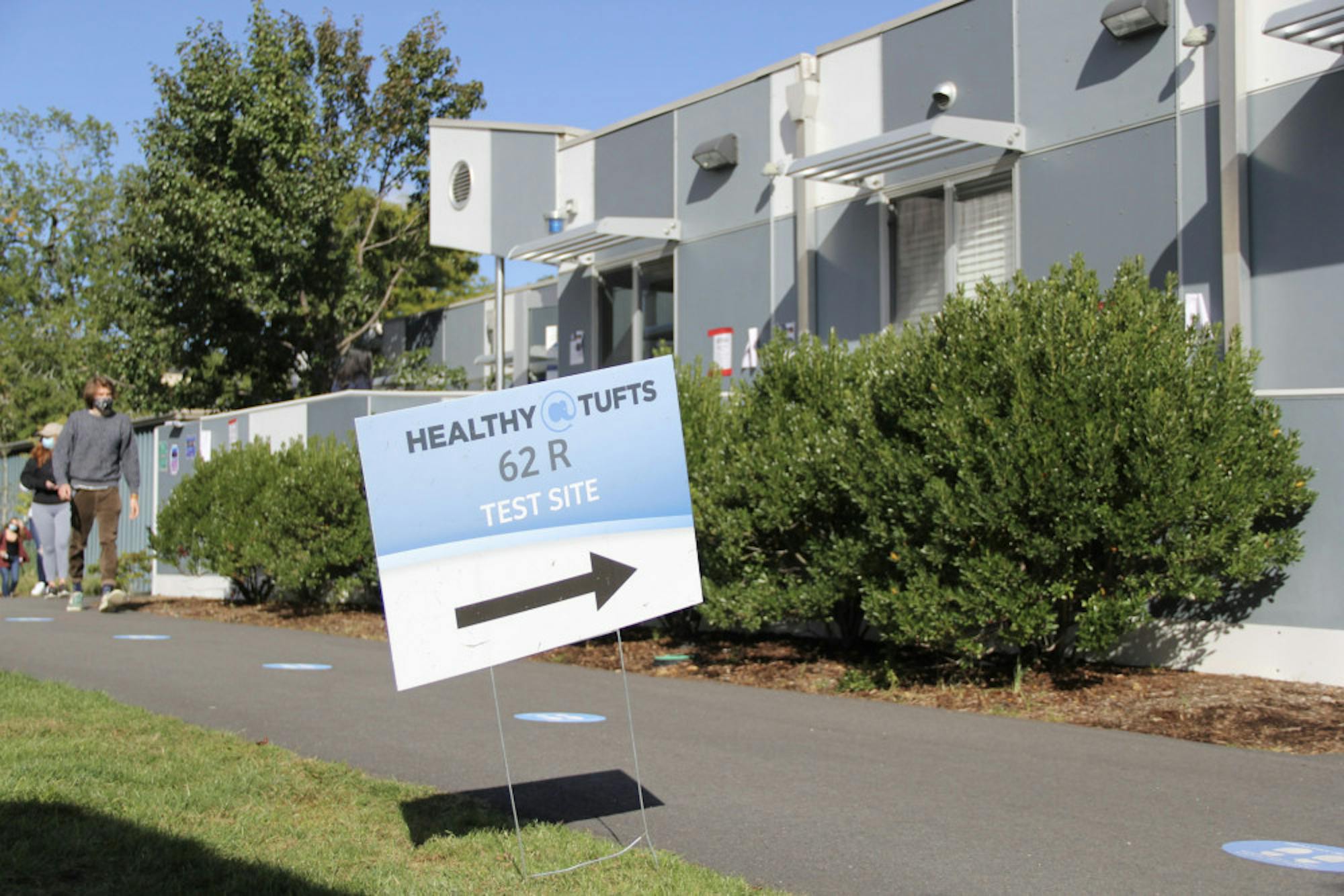Tufts University is switching to a pooled COVID-19 testing procedure for the 2021–22 academic year; pooled testing processes up to 10 samples at once, performing the same polymerase chain reaction (PCR) COVID-19 test that was used for individual testing in the past.
“Pooled testing combines samples from up to ten students and performs a COVID-19 PCR test on that group,” University Infection Control Health Director Michael Jordan wrote in an email to the Daily. “If the results of the test indicate that any of the samples are positive, follow-up tests will be given to each student in the pool to determine which student tested positive.”
Chris Sedore, chief information officer and vice president for information technology, wrote in an email to the Daily that every individual in a pool who tests positive will receive a text message, email or phone call alerting them to return to the testing center as soon as possible for an individual retest. If there are no positive results in a pool, everyone in the pool will receive text and email notifications confirming a negative test in the new Tufts testing portal.
Sedore added that CareEvolve, the online platform Tufts used last year for COVID-19 testing and reporting, was designed to manage individual PCR test results, not pooled testing. Therefore, the university developed a new results platform to accommodate the shift to pooled testing. Despite the new testing portal, all pooled tests and any subsequent individual tests will be processed by the Broad Institute, as they were last year.
Marie Caggiano, medical director of Health Service, said that weekly COVID-19 testing is crucial for the safety of the Tufts community.
“All faculty, staff and students who come to any Tufts University campus, regardless of frequency, are required to participate in routine surveillance testing,” Caggiano wrote in an email to the Daily. “Students living on campus, coming to campus regularly, accessing Tufts facilities or attending in-person classes will be tested once a week.”
Caggiano explained that economic and environmental advantages motivated the switch to pooled testing.
“Combining samples from multiple people into a single test is more environmentally sustainable and offers significant resource and cost savings without sacrificing the accuracy or speed of individual testing,” Caggianosaid. “The environmental impact is significantly less, with one larger tube being used in the pooled test versus 10 smaller ones being used in the individual test.”
According to the Broad Institute, pooled testing is especially useful for academic institutions, like Tufts, where a large volume of samples needs to be processed every day.
“Pooled testing is most effective in large populations, such as a school, where the infection rate is relatively low,” the Broad Instituteexplained on its website. “Pooled testing reduces the number of tests that need to be processed in the lab, saving a massive amount of time and resources while helping to ensure a safe environment in schools.”
Tufts developed the pooled-testing methodology last year in collaboration with the Broad Institute, Jordan said. With help from Tufts, the new process and results portal were piloted in Medford and Somerville K-12 public schools and found to be highly effective. Sedore added that Tufts is supporting pooled testing initiatives at several other local colleges.
While pooled testing will be the main method of COVID-19 testing this year, the university also employed a rapid test during arrival testing.All on-campus students were required to get a negative rapid test result at the Gantcher Center before moving into their dorms.
“The rapid test is called BinaxNOW and is self-administered in the same way — anterior nasal swab — as the PCR test, but the test is processed as soon as collection is done and results appear within 15 minutes,” Jordan said.
While the university’s vaccination requirement has allowed for the easing of many COVID-19 guidelines, Jordan said that Tufts’ approach to health and safety protocols, particularly COVID-19 testing, remains unchanged.
“Generally, the widespread availability of effective vaccines has enabled us to revise or eliminate many of the restrictions that were in place during the last academic year," Jordan said. "However, we all will need to continue to comply with safe health practices and the guidelines now in place in order to prevent spread and reduce the number of COVID-19 cases, especially for those who remain vulnerable to serious illness on campus and in our host communities.”






